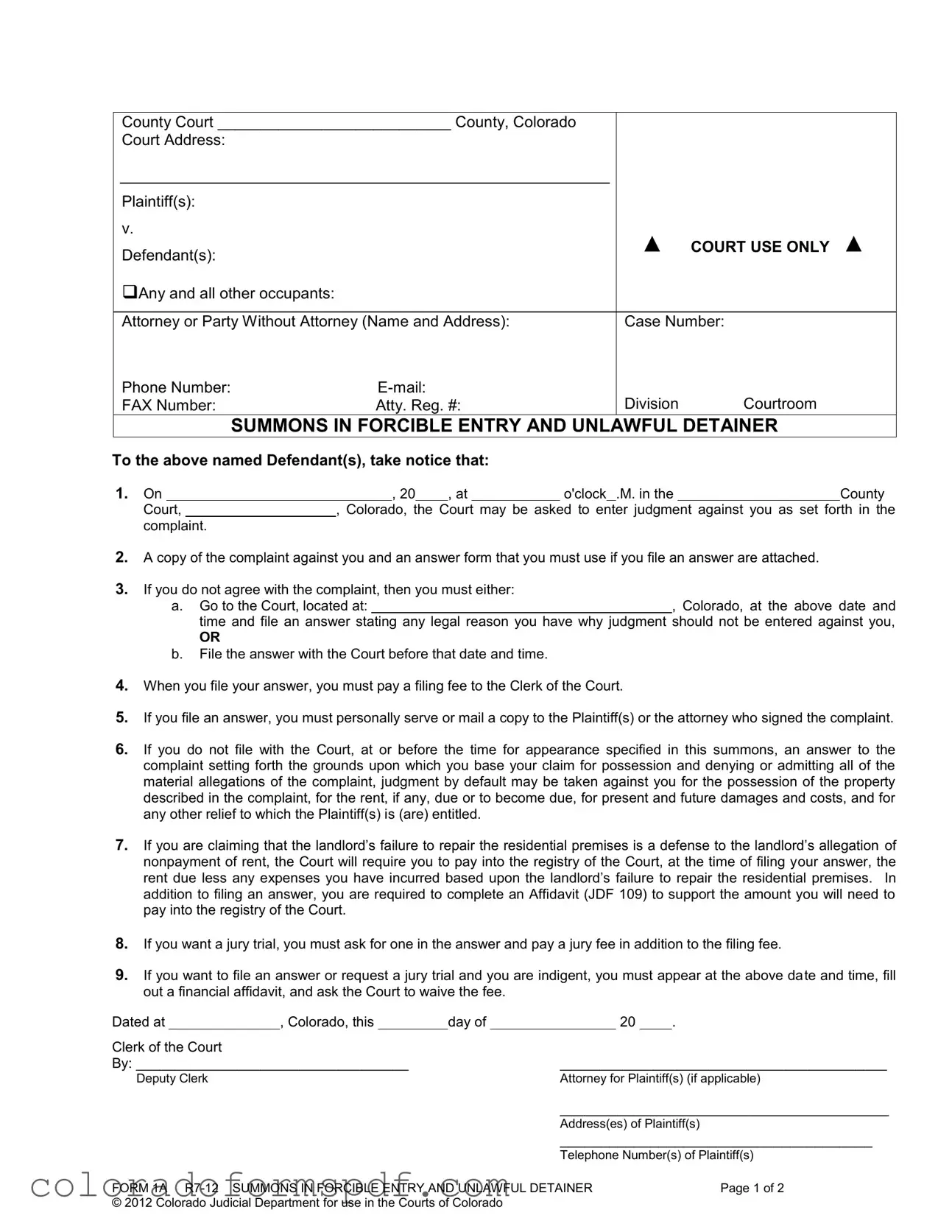Get Colorado Summons Form
The Colorado Summons form is a legal document that notifies a defendant of a court action against them, particularly in cases involving forcible entry and unlawful detainer. It outlines the obligations of the defendant, including the requirement to respond to the complaint within a specified timeframe. Understanding this form is crucial for both plaintiffs and defendants as it sets the stage for court proceedings in Colorado.
Get Document Online

Get Colorado Summons Form
Get Document Online

Get Document Online
or
Download PDF
Quick form completion starts here
Edit and finish your Colorado Summons online, then download.